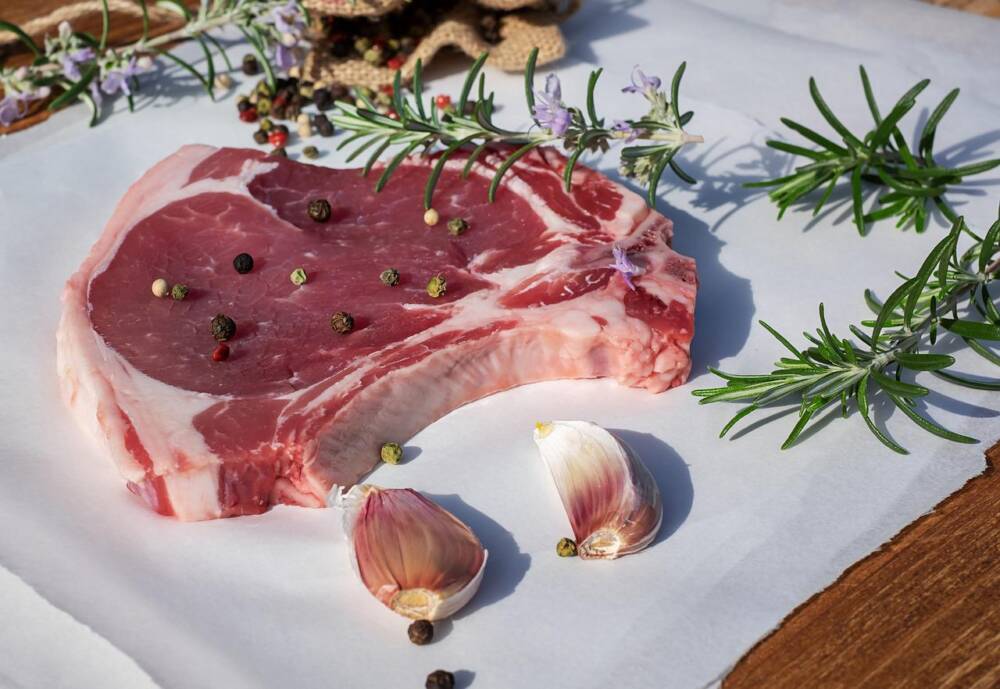Global private investors are investing large sums in so-called cell-based agriculture. It is a new way of producing traditional agricultural products such as meat, milk and eggs using modern biotechnology. In Norway, Nofima is betting on this, and a new major research project has recently received funding.
In 2013, the first hamburger based on meat grown in laboratories was produced and served. In Norway, research into lab-grown meat began fully in 2018. The research was led and funded by senior researcher Sissel Beate Rønning at Nofima Norwegian Council for Scientific Research. It was the first publicly available research project in this area.
The goal of developing a technology to cultivate cattle muscle cells and using residual raw material from the food industry as a growth medium for cells has been largely achieved. Nofima and Norway are placed on the map as one of the professional communities that are able to grow meat based on cells as a starting point. Sissel and her colleagues managed to grow small pieces of meat. The knowledge about raw material residues as food for muscle cells has deepened considerably.
The way forward for Norwegian investment in cell-based agriculture
Scientists from Nofima are continuing their work on cell-based agriculture in the Precision strategic research program. This summer, Nofima received a new research project called ARRIVAL. Here, too, the results will be publicly available.
- Put simply, there are two types of cell-based agriculture; Laboratory meat and precision fermentation. In ARRIVAL, we use both milk, eggs and animal proteins. We will carry out further research on how to increase cell-based meat production and what materials are suitable as a kind of travel device for muscle cells. As Sissel Beate Rønning says, we have already carried out some experiments and can show promising results using egg shell membranes. He has extensive experience in the production of cell-based meat and will also be the leader of this project.
Investments in new food technology
Scientists will produce edible proteins as part of precision fermentation. Such as egg whites and milk proteins, using yeast or other microorganisms. Precision fermentation has been used for years in the pharmaceutical industry, but in the case of food, its volumes are much larger. Therefore, the raw materials must be both affordable, they must be able to compete in price with other traditional sources of protein, such as, inter alia, soybeans and must be balanced. To find new protein sources, scientists want to test residual raw materials. They also want to test starch from beans and oats as well as egg whites as inputs to the process.
Also read: : Appraisal of a House in Norway, new bathroom
- Cell-based agriculture is a revolution in food production. It can change agricultural production and ownership, land use, policy making, eating habits and ethical issues. In the ARRIVAL project, we will research cell-based agriculture a few steps further. We want to introduce new sources of protein to existing food products. We also want to prepare society, consumers and the food industry for the possible consequences of this radical change in the way they cook, explains Sissel.
Muscle cells are picky
“The interesting thing in all cell cultures, such as meat breeding, is the input factors, or the food that cells need to grow. Muscle cells are picky, and what is now common in such production is growth medium made in part of calf blood. It's not at all sustainable and has made some people critical of this type of protein culture. If anyone is to be successful in scaling up this type of technology, new, sustainable growth media must be developed, says Sissel.
An important part of the research that began in 2018 was therefore to find a growth medium in which cells thrive and that is also sustainable. Researchers at Nofima developed new techniques and found that both residual raw materials from chicken and slaughter blood, as well as egg shell membranes and egg white, may be suitable.
What do consumers think about food produced in laboratories?
Skepticism about a growth medium made from a portion of calf blood is just one of several arguments against consuming food from the laboratory. There is general emotional skepticism among consumers. It is probably related to perceiving it as unnatural. It is also treated like tampering with creation, playing god and disrespecting nature as it is. It is also important for the consumer not to know the extent of possible future consequences. It's kind of like Frankenstein. On the other hand, many consumers are positive. They often highlight animal welfare and sustainable food production as important arguments.
Several international studies have been conducted on consumer attitudes and ways to increase acceptance of laboratory food. The conclusions show that it is important to educate consumers about how the production takes place. It is also important that new technologies enable the production of, inter alia, healthier meat. ARRIVAL researchers will focus attention on Norwegian consumers, what they think and what characteristics they want 'new meat' to have.
Sissel sees the benefits of cell-based agriculture.
- This form of food production can be done anywhere. The pressure on arable land is reduced, excess material - such as residual raw material and excess heat from other industries - can be used. Norwegian industry may develop in yet another new direction. In Norway, we may have an increased degree of nutritional self-sufficiency and we do not have to kill animals to produce the necessary protein in the form of meat. She adds that it is really important to be in the lead. In Norway, we have both the knowledge and the money needed to develop new technical solutions for food production.
Ethics, morality and social influence. New food technology
There are several ethical dilemmas associated with food grown in laboratories. As part of the new project, ARRIVAL Nofima will collaborate with other leading Norwegian research communities. The idea is to explain both the dilemmas, the morality associated with the dilemmas, and the impact of different choices on society.
The dilemmas are not just about transforming nature and the consequences of it. It is also about how a new technology can have an impact on food culture, traditional food production and the knowledge associated with it. Workplaces and business development are important. It is about who will know, will produce, and will earn money. The question is whether food grown in laboratories is more sustainable than food from, for example, regenerative farming.
Source: Nofima
Read and learn more: Growing your own food yourself is fun and good for the climate



